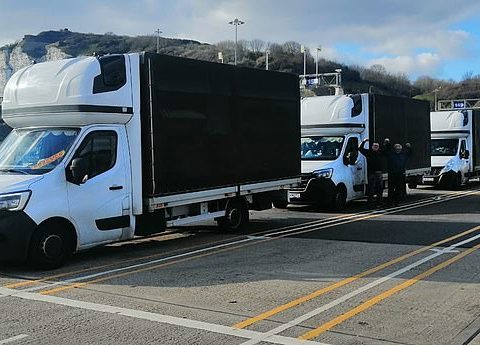Internal Market Commissioner Thierry Breton, who heads the EU executive’s vaccine task force, told TF1 television on Sunday that Europe has “absolutely no need” for more vaccines produced outside of the EU.
Despite the damning criticism received by the bloc on its slow vaccine rollout, Mr Breton insisted the EU would be able to reach herd immunity by mid-July.
He said: “We have absolutely no need of Sputnik V.
“Today, we clearly have the capacity to deliver 300 to 350 million doses by the end of June and therefore by July 14 … we have the possibility of reaching continent-wide immunity.”
Breton repeated a previous comment that the EU should help Russia with the production of the vaccine if needed but priority should be given to the Europeans, he said.
He said: “Doses are there, now people must accept vaccination and that we have the logistics.”
The comments sparked the furious reaction of the Russian jab who took to Twitter to accuse the Commissioner of “clear bias”.
They wrote: “Europeans want a choice of safe and efficient vaccines, which you so far failed to provide.
“If this is an official position of the EU, please inform us that there is no reason to pursue EMA approval because of your political biases. We will continue to save lives in other countries.”
READ MORE: Boris will call EU this week to stop Brussels banning Covid jab export
The European Medicines Agency (EMA) launched a rolling review of the Sputnik V vaccine earlier this month.
It comes as trust in the safety of vaccines is plummeting across the continent after several EU countries suspended the AstraZeneca jab last week.
A new YouGov poll showed that confidence in the Oxford vaccine has taken a big hit in Spain, Germany, France and Italy as reports of rare blood clots have been linked to it and many countries briefly stopped using it.
The polling firm YouGov said it had already found in late February that Europeans were more hesitant about the AstraZeneca vaccine than about those from Pfizer Inc/BioNTech and Moderna Inc, and that the clot concerns had further damaged public perceptions of the AstraZeneca shot’s safety.
DON’T MISS:
Boris to urge tests twice a week to prevent future UK lockdowns [INSIGHT]
EU vaccine war escalates as bloc rejects Covid jabs to UK from Holland [REACTION]
Britain urged to get tough with EU after ‘hostile act’ [ANALYSIS]
At least 13 European countries in the past two weeks stopped administering the AstraZeneca shot, co-developed with scientists at Oxford University, after reports of a small number of blood disorders.
Many resumed its use on Friday after the European Medicines Agency regulator said in a preliminary safety review on Thursday that the vaccine was safe and effective and not linked with a rise in the overall risk of blood clots.
EMA did not rule out a possible link, however, with rare cases of blood clots in the brain known as cerebral venous sinus thrombosis (CVST).
YouGov’s poll – which covered about 8,000 people in seven European countries between March 12 and 18 – found that in France, Germany, Spain and Italy, people were now more likely to see the AstraZeneca vaccine as unsafe than as safe.
Some 55 percent of Germans say it is unsafe, while less than a third think it is safe, the poll showed. In France, where AstraZeneca’s COVID vaccine was already unpopular, 61 percent of people polled say they now see it as unsafe.
In Italy and Spain, most people previously felt the AstraZeneca vaccine was safe – at 54 percent and 59 percent respectively – but those rates have fallen to 36 percent and 38 percent respectively, in the latest poll.
The survey showed that only in Britain, where the AstraZeneca COVID-19 vaccine has been used in a national rollout since January, have the blood clot concerns had little to no impact on public confidence. The majority of people polled in the UK – 77 percent – still say the shot is safe. Their trust in it is on a par with Pfizer’s 79 percent perceived safety rating.
YouGov also said there appeared to be no spillover concerns across the seven European countries polled for the Pfizer and Moderna COVID-19 vaccines, both of which were seen as being as safe as in a poll three weeks ago.




